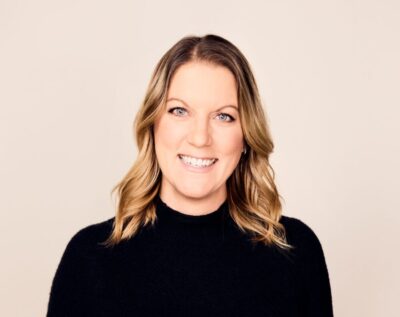Alternative protein startup NotCo has exited the refrigerated milk segment in the US and is now focused on building a presence for its NotMilk plant-based milk in the far-smaller, but faster-growing shelf-stable category.
The company is also expanding US distribution for its plant-based meat brands NotBurger and NotChicken.
A Santiago-based foodtech company deploying an artificial intelligence (AI) platform called ‘Giuseppe’ to bring greater sophistication to the formulation of meat and dairy alternatives, NotCo entered the US in 2020 with refrigerated dairy-free milk NotMilk and rapidly increased distribution to several thousand stores including Whole Foods and Costco.
Designed to closely mimic the taste and functionality of dairy milk, NotMik has a base of pea protein and sunflower oil, but also features unexpected ingredients including pineapple and cabbage, which Giuseppe identified as a combination that would generate lactones, aroma compounds found in dairy products.
Giuseppe also identified ingredients and processes that delivered foaming and emulsification properties that made NotMilk punch above its weight in the category, claimed the startup.
“I look at 2023 as year one for NotCo in the US. We are rebuilding business in our shelf-stable milk, and then really getting on the map with our plant-based frozen burgers and chicken.” Meredith Madden, US general manager, NotCo
US general manager: Untapped opportunities in shelf stable in retail and foodservice accounts
While NotMilk gained some early traction, NotCo decided to pull out of retailers’ chillers at the beginning of this year, with one industry source telling AgFunderNews that NotMilk was “never able to achieve competitive velocities on their items and would likely have been discontinued by the retailers. We continue to see that brands that have attempted to mimic milk have poor results.”
NotCo’s new US general manager Meredith Madden told us the products were performing well but that an internal decision was made to switch to shelf-stable, where the brand had just started to build a meaningful presence: “We made the decision to exit the refrigerated 64-oz plant-based milk SKUs in January, just before I joined in February, and I think there were multiple internal reasons.”
But she added: “I don’t believe the move was seen by retailers as NotCo pulling out of the market because we fast followed with the shelf-stable milk and we’re also coming to them with plant-based meat products,” explained Madden, who joined NotCo after a decade in senior marketing and strategy roles at Greek yogurt maker Chobani.

“We did a lot on our social media to explain the change and make people aware that NotMilk isn’t gone, you can now find us in the shelf stable set.”
NotMilk, which had been distributed in around 7,000 stores in 2022 in the chilled set, is currently in around 3,500 stores in the shelf-stable category with 32oz and 8oz products in whole milk, chocolate, and barista variants, with an unsweetened vanilla coming out later this year, she said.
“We had a pretty big drop [in distribution] in conventional retail [after pulling the refrigerated products], whereas in the natural foods channel we already had a lot of distribution in our shelf-stable four packs. But most often the refrigerated and the shelf stable buyer are not the same buyer, so you really are starting over and seen as a new entrant. It wasn’t as simple as remove one [refrigerated SKU] and add the other [shelf-stable product].
“You also potentially have a different consumer and different competitive set in shelf-stable, where people buy the product as more of a pantry load, and the pricing is also quite a bit different.”
- Plant-based milk is a $2.84bn category in US retail, according to SPINS data (natural enhanced and conventional retail) shared with AgFunderNews for the 52 weeks to July 16, 2023.
- Dollar sales were up 7% while units were down -5.4%, with a 3.5% increase in unit sales of shelf-stable products ($320m) offset by a 6.7% drop in unit sales of refrigerated products ($2.52bn).
‘In other countries shelf-stable is the bigger part of the market’
But she added: “I think people forget that in other countries shelf-stable is the bigger part of the market, and so I hope that we can ultimately surpass the previous distribution [that NotCo had built up in the refrigerated space] with shelf-stable, just because there were a lot of customers and channels that remain untapped.
“Our strategy in retail in general is to start big with the natural channel, develop into e-commerce, and then move into regional customers. We’ve been selling on Amazon for quite a while with the shelf-stable NotMilk and really seen a lot of uptick there. And then we have quite a bit of conventional retail distribution that is picking up in the back half of this year.”
She added: “Foodservice is also a channel we are going to be very focused on next year especially with our 8oz shelf-stable product and our new barista milk, where taste, texture and functionality is a huge piece for us. We did an abundance of testing against all the other plant-based competitors and [dairy] milk itself to make sure that we had a product that foamed really well and would stand up in hot and cold coffee without feathering.
“We also tested across many different acidity levels of coffee because what may work with one coffee shop’s roast may not work with another one, and we do believe that we outperform everything we’ve seen from the competition.”
Beyond cafes and coffee shops, NotCo is also targeting schools and formulating new products with higher levels of protein, she added.
‘I really look at 2023 as year one for NotCo’
Madden added: “I look at 2023 as year one for NotCo in the US. We are rebuilding business in our shelf-stable milk, and then really getting on the map with our plant-based frozen burgers and chicken.
“When I joined I kind of took a step back and said what do we really need to do to be efficient but also be successful in 2023 if we consider it a year one company and not the third year of a startup in the US,” she explained.

NotBurger, NotChicken
On the plant-based meat side of the business, NotCo has two offerings in the US: NotBurger and NotChicken, with several more SKUs coming out shortly including a smaller burger, and several more NotChicken SKUs including tenders, dinosaur nuggets for kids and a spicy NotChicken patty in partnership with hot sauce brand Yellowbird, said Madden.

“NotBurger and NotChicken patties are widely available in the natural channel and we have acceptances across many large regional retailers coming as soon as September this year, and then more to come next year. Getting our full portfolio on the shelf together, we believe will really help with a bit more brand blocking and presence.”
Asked about the recent sales declines in meat alternatives in US retail, she said retailers are refreshing their sets after taking a hard look at the data: “They’re being pretty methodical about it, bringing in a few new items and getting rid of their lowest performers, asking, ‘Do I need 10 different brands of nuggets?'”
She added: “They’re really looking for products that can help drive incremental sales to the category, which why we went down the path of our Yellowbird partnership with NotChicken, rather than just bringing out a version of a patty with a different type of breading or something.”
In the foodservice arena for plant-based meat, NotCo is “going after the mid-tier chains, the 200 to 400 store chains,” said Madden. “We’re also really going heavy into the vegan chains, as while they’re a smaller store count, the velocity in general is much higher because they’re only offering vegan products.
“We’re also talking to chains that have not really gotten into this space [plant-based meat analogs] yet, and they’re looking at the incrementality of adding one or two plant based items to their menu.”
“The problem when people taste products they don’t like is that they get turned off from the whole category.” Meredith Madden, US general manager, NotCo
Marketing plant-based meat alternatives
Madden, who used to work for Impossible Foods CEO Peter McGuiness when he was president at Chobani, agreed with his contention that plant-based meat brands have not done a great job of selling their wares to the mass market.
“I definitely agree with Peter,” said Madden, who is based in New York at NotCo’s main US office (it also has R&D labs in San Francisco). “But it’s tough for smaller brands because you can go really, really big and try to explain who you are, why you’re here, why to believe, and why to try, but you also have to have the brand recognition in store and the distribution to back that up.”
As for what messaging resonates, taste is king, she said. “The problem when people taste products they don’t like is that they get turned off from the whole category— ‘I tried that plant based stuff and it tastes like paper’—so we have to really get people to taste our product.”
She added: “Sustainability is an important layer [of NotCo’s marketing strategy] but we also know that people aren’t necessarily willing to change their habits or spend more because of it, so our strategy is going to be more about why you need to try us and why you shouldn’t be scared. So for example our team in Mexico has had great success on TikTok with this approach.
“We also try to do plenty of sampling at shows and festivals. But taking my CMO hat off and putting on my general manager hat, we have to find the solutions that make the most sense for the business, and that may be small, targeted market activations versus broader shopper or customer activations.”





